Rustam Minnikhanov: ‘One should know the history of CPSU too in order to avoid making mistakes’
An interregional petrochemical cluster will be able to solve the raw material problems for petrochemical enterprises of Tatarstan and Bashkortostan
What increased a 2% production growth in the petrochemical complex of Tatarstan in the first quarter of 2016? Why should experts in oil extraction know the history of CPSU? What import substituting technologies can be implemented in oil extraction and petrochemistry of Tatarstan? Finally, when will the republic has road surfaces that would serve more than 3 years? All these questions were discussed at the next meeting of the board of directors of Tatneftekhiminvest-holding PJSC that took place on 3 August in the Cabinet of Ministers of the Republic of Tatarstan.
0,5-trillion rubles products
Pleasant news opened the meeting. By Tatarstan President's instruction, the rector of the Kazan Federal University Ilshat Gafurov was awarded President's gratitude for his long-standing fructiferous labour, huge contribution to the development of science and education.
Then the participants of the meeting heard out a report of the director general of Tatneftekhiminvest-holding Rafinat Yarullin who told about the state of affairs in the gas and petrochemical complex of the republic in the first quarter.
In the complicated economic conditions, the gas and petrochemical complex of Tatarstan has demonstrated a 2% production growth, including the group of basic enterprises – by 4,2%. The results of Tatneft, TAIF-NK, Nizhnekamskneftekhim, Nefis Cosmetics, Nizhnekamsktekhuglerod and KVART have been higher, compared to last year's numbers. Tyre Complex of Tatneft, Kazanorgsintez, the Kazan Synthetic Rubber Factory, Karpov Chemical Factory reduced their production. The total cost of the sold products of the enterprises of the gas and petrochemical complex has made up 555bn rubles.
Prices in the sectors continue growing. It allows it increase the revenue, income and profitability and tax payments of the chemical companies. As a result, basic enterprises expended over 8bn rubles to the budget of the republic, which is more than 1,5 times higher than in 2015. Tatneft's payment to the consolidated budget of the republic has increased by 17% due to income, property and land taxes.
The director general of the holding analysed the results of the work of the largest enterprises of the republic. 17,285k tonnes of oil and 501m cubic metres of associated gas have been extracted in Tatarstan in total during 6 months. 8,8m tonnes of oil and gas condensate have been processed.
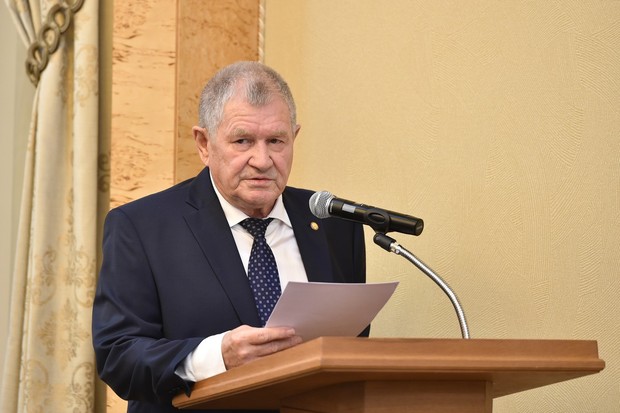
Tatneft Group of Companies extracted 13,908k tonnes of oil. 31% of them were sent for refinery to TANECO where 4,555k tonnes of oil products were made. It is 5% more than last year's results. Production volumes in the tyre complex of Tatneft have reduced by 12%. Only the production of new tyre types like solid metal core, light-truck and lightweight Viatti tyres has grown. Yarullin told the greatest fall was in the first quarter – by 21,5%. In total, 5,77m tyres have been produced from January to June.
The revenue of the enterprises of TAIF GC for the first quarter 2016 has been 183bn rubles. Nizhnekamskneftekhim is finishing the modernisation of its Alpha-Olefin Complex. The enterprises of the group have increased their production of diesel fuel, motor and hydrocarbon gasolines and halobutyl rubbers. According to the director general of Tatneftekhiminvest-holding, a deficit of raw material was the reason for the fall in polyethylene production in Kazanorgsintez.
Residents of the 'chemical city' have received over 10,5bn rubles of returns. The growth has been 32%, compared to last year.
In conclusion, Rafinat Yarullin returned to a topic that concerns him very much – the fourth industrial revolution. He told, according to researches of PricewaterhouseCoopers, chemical companies of the world are expected to reduce their costs by 4% as a result of a transfer to digital production. Partially, it will be achieved by means of implementation of robots in the production. The head of Tatneftekhiminvest-holding urged the Tatarstan companies to be active while implementing robots in the chemical industry, production of rubber and plastic products in order to enhance workforce productivity.
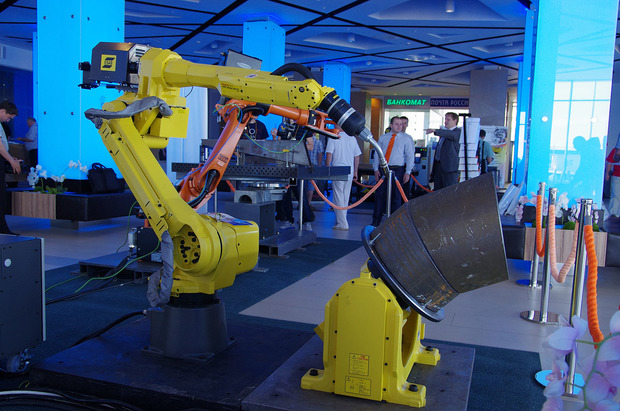
Instead of import
The next participant of the meeting, a member of the board of directors of Nizhny Novgorod Sorbents CJSC Anatoly Novikov presented elaborations of the company that can be called import-substituting products.
Nizhny Novgorod Sorbents CJSC company was founded on the basis of the pilot plant of the All-Union Scientific and Research Institute of Oil and Gas Refinery, which was created in 1957. Now the company produces and sells a molecular sieve for double glazing, catalysts, zeolites for oil refinery, petrochemical and gas processing industries.
Anatoly Novikov informed that, due to the update of the production, the enterprise is able to offer petrochemical enterprises catalysts that are no worse than the imported ones. 'Today the share of imported catalysts in the Russian petrochemical complex reaches 100%. But we are ready to make Russian analogues created according to these samples of foreign origin. This work will take at least 2-3 years. This is why it is necessary to start it right now when there is a serious state support,' Novikov marked the possibilities of this enterprise.
President wanted to know the opinion of the deputy director general of TAIF PJSC on Management and Strategic Development of Nizhnekamskneftekhim PJSC Vladimir Busygin. He told Nizhnekamskneftekhim is interested in the supply of new catalysts, and the senior technologist is already studying the elaborations of Nizhny Novgorod Sorbents CJSC.
Rustam Minnikhanov offered to create a working group that would include the enterprises of TAIF and Tatneft Groups of Companies in order to analyse the possibilities of cooperation with Nizhny Novgorod Sorbents CJSC.
'Catalysts are of paramount importance. It is clear some commercial and economic or political arguments are not to affect the operability of our enterprises,' the head of the republic formulated the task.
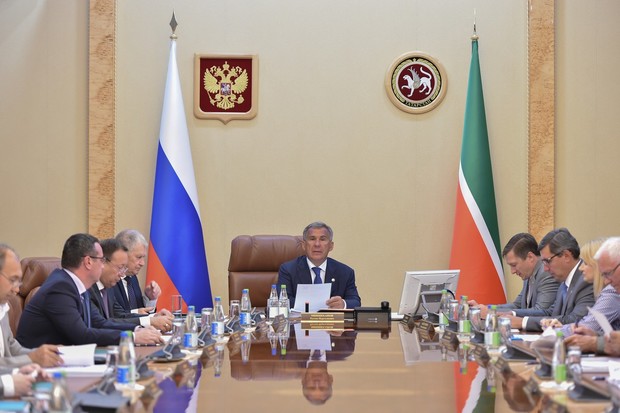
To reduce oil viscosity and increase oil extraction
The Prorector of the Kazan Federal University on Scientific Research Danis Nurgaliev continued the topic on import substitution in petrochemistry and oil refinery. He told that today the university is elaborating catalysts and adsorbents for petrochemical enterprises. Such work is being done together with Nizhnekamskneftekhim, Karpov Chemical Factory and the Synthetic Rubber Factory.
In 2014, a common project with Nizhnekamskneftekhim was fulfilled. A Catalyst Production Plant was put into operation on a site of the enterprise. The university plans to create a catalyst for liquid silicone production in the Kazan Synthetic Rubber Factory by the end of 2017.
Projects of the KFU on oil extraction are connected with the creation of a model of oil field exploitation, including highly-viscous and extremely viscous oil. Such a design is just necessary for a successful elaboration of field and increase of effectiveness of oil extraction.
The university creates such models for Tatneft and small oil companies. It also helps small oil companies to find a place for boring high flow rate oil wells.
Some projects of the KFU can be called revolutionary. For instance, Tatneft set it the task to reduce oil viscosity. So, now the Tatarstan highly-viscous oil can be pumped into the pipe without adding Devonian oil. While there is a constant problem of Qil Quality Bank, the elaboration is topical.
The design centre that creates models also prepares specialists. Over 30 experts of Russian and foreign companies upgrade their skills here every year.
Tatarstan President's Adviser on Elaborations of Oil, Gas and Oil Fields, a professor of the Kazan Federal University Renat Muslimov highly estimated the elaborations of the university and noted 'if we create models of field exploitation correctly, it will work. It is a right direction'.
Director general of Tatneft PJSC Nail Maganov noted the importance of the elaborations of the KFU but criticised the organisation of the educational process in the design centre: 'Programmes are to be changed, more practice is needed. Specialists can study even the history of CPSU. It should be optional'.
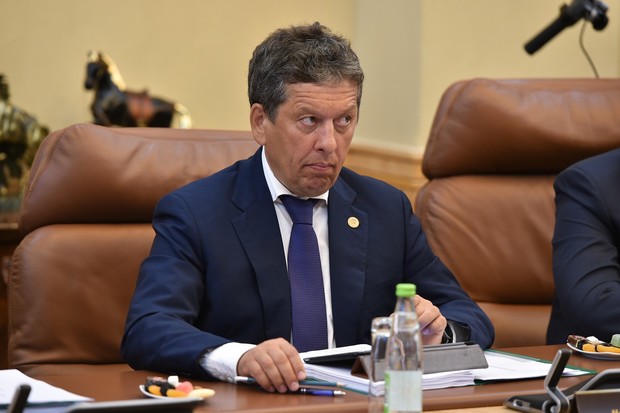
'One should know the history of CPSU too in order to avoid making mistakes',' President of Tatarstan joked.
It should be noted all educational programmes are to be accurate and correspond to clients' requirements. At the same time Rustam Minnikhanov thinks the KFU is the top university in Tatarstan and must be involved in all new elaborations.
With their own ethylene
The next speech given by the director of the Institute of Petroleum Refining and Petrochemistry of the Republic of Bashkortostan Elshad Telyashev was very emotional as well as the reaction to it.
'Surprised, we are looking how Tatneft is purchasing Bashneft,' he immediately drew people's attention.
'Lesser of two evils principle: if it is sold to our people, it's better for you,' President of Tatarstan parried.
All his speech was dedicated to the assessment of possibilities of the interregional cooperation of Tatarstan and Bashkortostan. Let us remind Tatarstan and Bashkortostan created a cooperation concept on the development of the petrochemical complex. The elaboration of the concept was a task set by the presidents of both republics. The document has priority areas for cooperation of the republics, types and volumes of products for mutual delivery. There were chosen key projects whose goals are not repeated.
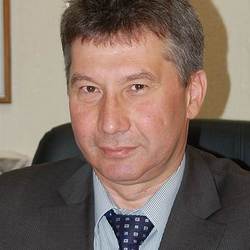 In Elshad Telyashev's opinion, the two republic could create an interregional petrochemical cluster. One of the possible projects of this cluster whose current name is Ethylene will allow to provide the petrochemical enterprises of Tatarstan and Bashkortostan with a 7-million tonne raw material.
In Elshad Telyashev's opinion, the two republic could create an interregional petrochemical cluster. One of the possible projects of this cluster whose current name is Ethylene will allow to provide the petrochemical enterprises of Tatarstan and Bashkortostan with a 7-million tonne raw material.
This project can become an alternative to a project called Yamal-Povolzhye. It should be reminded in 2013 Bashkortostan, Tatarstan and Yamalo-Nenets Autonomous Okrug created Yamal-Povolzhye consortium. It is supposed to transport light hydrocarbon raw material from Nadym-Pur-Tazovsky District of Western Siberia to Volga regions for sale of investment projects of petrochemical and oil refining enterprises. In 2014, the raw material base of Yamal fields was estimated. And feasibility study was carried out. The volume of the investment was estimated at 495bn rubles (excluding VAT), including the costs of construction of the main branch of the pipeline and Gas Fractionation Unit in Nizhnekamsk. The preparation of offers on Yamal-Povolzhye is included in the road map of the creation of the territorially detached Innokam Innovation and Production Centre.
But at the moment the project 'stalled' at the federal level. This is why the director of the Institute of Petroleum Refining and Petrochemistry of the Republic of Bashkortostan offers to use the possibilities of Gazprom and its gas pipes located in Tatarstan and Bashkortostan.
Yamal-Povolzhye is estimated at $17-19bn. Ethylene, which includes the construction of gas processing units from the Gazprom chain and ethane pyrolysis in four points in Kazan, Nizhnekamsk, Ufa and Salavat, will be $10-11bn.
Why roads fall apart
Bashkir elaborations of bitumen road surface found greater response among the members of the board of directors. Elshad Telyashev told Bashkortostan creates several regional normative documentations for bitumen, asphalt bitumen and polymer asphalt bitumen. In his opinion, federal norms on the road surface are groundless and unrealistic.
'The main question is that you can't produce bitumen according to federal norms,' Rustam Minnikhanov set a task. 'This is why you create new norms, not new bitumen. Good bitumen doesn't exist now.'
'If today bitumen 100% corresponds to federal norms, roads will fall apart,' Telyashev explained. 'This is why we need to produce another bitumen.'
'They are already falling apart. The upper layer of the road surface serves for 3 years. We need new technologies. Make them up!'
'Such technologies already exist. The road surface of our bridge in Ufa over the Ufimka River has been serving for 8 years without any repair, crack and run and will last for 15 years more!'
'We need to unite, create the cluster. So our scientists can visit each other. We will go to Bashkiria and look what they are doing. This experience is to be used. Butimen is not a secondary product. Good roads need quality bitumen,' Tatarstan President concluded.